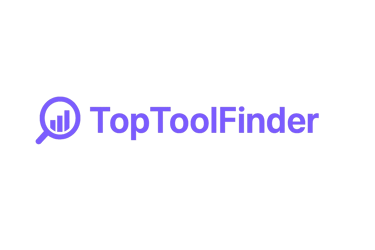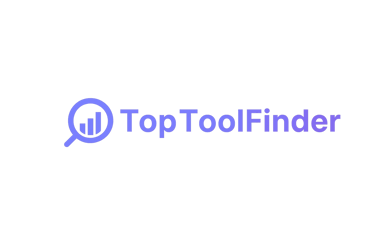🎯 Top 6 CRMs for Small Businesses & Startups (2025 Edition)
Choosing the right CRM can make or break your sales process. In this guide, we compare the six best CRMs for 2025 — focusing on affordability, ease of use, and scalability for small businesses and startups. Discover which CRM will help you organize leads, close deals faster, and grow your business without breaking the bank.
TopToolFinder Team
5/8/20245 min read
Our Final Recommendation: Match the CRM to You
The perfect CRM isn't universal — it's personal. Your team size, sales strategy, tech skills, and growth goals all play a role.
Let’s break it down by user type so you can confidently choose the CRM that gets you:
👩💻 Solo entrepreneurs & Freelancers
You're wearing all the hats. You want quick setup, clean UI, and no feature bloat.
Bigin by Zoho is your best bet — lightweight, affordable, and intuitive.
Need a free option with more marketing? HubSpot CRM’s free tier is unbeatable.
🧠 Startup Founders
You need scalability but can’t afford complexity or high costs. HubSpot CRM offers a powerful free plan, plus it's great for investor-friendly reporting.
As your sales process grows, you can smoothly upgrade.
📈 Sales-Driven SMBs
You live and breathe deals and pipelines.
Pipedrive is made for your world — clean pipelines, no fluff, and just enough automation.
If your team is outbound-heavy, go for Close CRM and unlock built-in calling and SMS.
🏗️ Process-Oriented Teams
You thrive on workflows, automation, and detailed segmentation.
Zoho CRM is ideal for operationally mature teams with custom flows and diverse sales channels. It’s great for B2B service businesses or agencies managing longer deal cycles.
🚀 Scaling Companies & SaaS Startups
You’re growing fast and need robust functionality now — not six months later.
Salesforce Essentials gives you the security, customization, and ecosystem to scale. If you already have technical staff, this is a long-term win.
💬 Relationship-Driven Professionals
You need more than a pipeline — you want to nurture contacts over time.
Clay CRM (not reviewed above but great to mention) brings AI and contact enrichment to keep relationships warm. It’s ideal for founders, consultants, or investors.
🧭 The Takeaway
Don't chase features!
Choose a CRM that matches your current priorities, not just your future dreams. Think ease of use, total cost, learning curve, and whether it speaks your language — whether that’s simplicity, speed, or scalability.
If you're still not sure?
Head to our Find My Tool Stack quiz — and let our real-world-tested AI guide you to your perfect CRM.






Source: Salesforce
Source: Bigin
Source: Pipedrive
Source: Close CRM


Source: Zoho
1. HubSpot CRM — The Best Free Option for Beginners
Price: Free Trial incudes multiple tools. (Starter plan at $15/month per user)
Overview: HubSpot CRM is built for simplicity, elegance, and scalability. It's particularly popular among startups and SMBs because of its intuitive design and free tier. From managing contacts and deals to launching email campaigns and creating landing pages, HubSpot offers a seamless experience across departments.
Key Features:
Contact and company management with activity timelines
Built-in email marketing tools
Meeting scheduler and calendar integrations
Live chat, chatbot builder, and shared inbox
Sales dashboard with custom reporting
Pros:
Fantastic UI/UX that requires minimal training
Best free tier in the CRM space
Seamless integrations with Google Workspace, Outlook, Slack, Zapier
Strong support community and resources
Cons:
Limited functionality on the free plan if you scale
Some essential features like advanced automation and reporting are locked in paid tiers
Best For: Founders and marketers who need a tool that can grow with them — especially teams new to CRMs.
2. Pipedrive — Pipeline-Driven and Sales-Focused
Price: $14/month per user (Lite plan)
Overview: Pipedrive’s strength lies in its visual pipeline. Designed by salespeople for salespeople, it emphasizes visibility, follow-ups, and actions. It’s not bloated with extras — it’s focused and efficient.
Key Features:
Drag-and-drop sales pipeline
Lead and deal tracking with customizable stages
Native email syncing with templates and scheduling
Smart contact data lookup
Customizable dashboards and goal tracking
Pros:
Ultra-intuitive interface — you’ll be up and running in minutes
Mobile app is among the best in CRM apps
Smart activity reminders to keep reps on track
Cons:
Limited marketing automation
Basic reporting in entry-level plans
Best For: B2B companies, sales teams, or freelancers who rely on clarity and momentum in their deal cycles.
Choosing a CRM (Customer Relationship Management system) isn't just about comparing features.
It's about finding the right partner for your business workflow, your budget, and your growth stage.
At TopToolFinder, we know the chaos of comparing tools firsthand — because we've been in your shoes.
So, here it is: a deep dive into the best CRMs of 2025, packed with insights, pricing, features, pros, cons, and recommendations.
3. Zoho CRM — Robust Features at an Affordable Price
Price: $23/month per user (Standard plan)
Overview: Zoho CRM is a powerhouse built for flexibility and scalability. It’s part of the Zoho ecosystem, which includes tools for finance, HR, marketing, and more — making it a strong choice for those looking to consolidate software.
Key Features:
Sales automation with blueprints and macros
Lead scoring, segmentation, and assignment rules
Workflow and approval automation
Multi-channel communication: email, phone, social, chat
Advanced analytics and sales forecasting
Pros:
Rich with features, even at the base plan
Excellent integration with Zoho's suite of apps
Supports complex sales cycles with automation
Cons:
Slightly dated user interface
Learning curve for non-technical users
Best For: SMEs and growing teams looking for an affordable CRM that handles complexity and scale.
4. Bigin by Zoho — Lightweight CRM That Keeps It Simple
Price: $8/month per user (Express plan)
Overview: Bigin is Zoho CRM’s simpler sibling.
It’s tailored for small businesses, solopreneurs, and freelancers who want an organized pipeline and contact system without diving into deep customization or automation.
Key Features:
Visual pipeline with drag-and-drop functionality
Built-in telephony and call logging
Contact and activity management
Simple automation and workflows
iOS and Android mobile apps
Pros:
Extremely beginner-friendly
Affordable and fast-loading
Great for local service-based businesses
Cons:
Limited automation
Not suitable for advanced sales operations
Best For: Solopreneurs, consultants, and micro-businesses who want CRM functionality without the bloat.
5. Salesforce Essentials — Enterprise Power, Scaled Down
Price: $25/month per user (Starter Suite plan)
Overview: Salesforce is the go-to CRM for large enterprises, and the Essentials plan brings that power to small businesses. While you get access to a lighter version, the infrastructure behind it remains world-class.
Key Features:
Opportunity and lead management
Custom workflows and approval automation
Custom dashboards and advanced reports
AppExchange marketplace with thousands of integrations
Guided onboarding and in-app tutorials
Pros:
Huge customization potential
Trusted and secure infrastructure
Great for companies expecting to scale
Cons:
Steeper learning curve
Even the Essentials plan can feel bloated for beginners
Best For: Teams with technical capacity or support who need flexibility, scale, and security.
6. Close CRM — High-Speed CRM for Sales Teams
Price: $49/month per user (Startup plan)
Overview: Close CRM is built for teams that sell fast and follow up even faster. With built-in calling, texting, and emailing, it acts as a full communication hub and CRM in one.
Key Features:
Power dialer with call coaching and logging
SMS and email sequences
Pipeline management and activity-based reminders
Built-in Zoom-like video calls
Real-time performance tracking
Pros:
Combines CRM with communication tools
Streamlines sales workflows from outreach to close
Reduces the need for third-party calling/emailing tools
Cons:
Higher price point
Overkill for teams with simple sales processes
Best For: High-velocity sales teams, SaaS companies, and outbound reps who need a CRM that matches their pace.
Your go-to hub for software tool comparisons.
Support
office@toptoolfinder.com
© 2025. All rights reserved.


